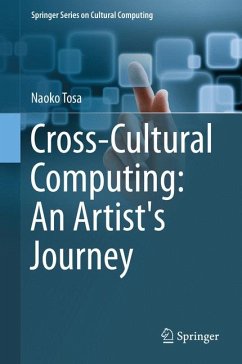
Human Machine Symbiosis (eBook, PDF)
The Foundations of Human-centred Systems Design
Redaktion: Gill, Karamjit S.
Versandkostenfrei!
Sofort per Download lieferbar
72,95 €
inkl. MwSt.
Weitere Ausgaben:

PAYBACK Punkte
36 °P sammeln!
There is now a serious discussion taking place about the moment at which human beings will be surpassed and replaced by the machine. On the one hand we are designing machines which embed more and more human intelligence, but at the same time we are in danger of becoming more and more like machines. In these circumstances, we all need to consider: . What can we do? . What should we do? . What are the alternatives of doing it? This book is about the human-centred alternative of designing systems and technologies. This alternative is rooted in the European tradition of human-centredness which emp...
There is now a serious discussion taking place about the moment at which human beings will be surpassed and replaced by the machine. On the one hand we are designing machines which embed more and more human intelligence, but at the same time we are in danger of becoming more and more like machines. In these circumstances, we all need to consider: . What can we do? . What should we do? . What are the alternatives of doing it? This book is about the human-centred alternative of designing systems and technologies. This alternative is rooted in the European tradition of human-centredness which emphasises the symbiosis of human capabilities and machine capacity. The human-centred tra dition celebrates the diversity of human skill and ingenuity and provides an alternative to the 'mechanistic' paradigm of 'one best way', the 'sameness of science' and the 'dream of the exact language'. This alternative vision has its origin in the founding European human-centred movements of the 1970s. These include the British movement of Socially Useful Technology, the Scandinavian move ment of Democratic Participation, and the German movement of Humanisation of Work and Technology. The present volume brings together various strands of human-centred systems philosophy which span the conceptual richness and cultural diversity of the human-centred movements. The core ideas of human-centredness include human-machine symbiosis, the tacit dimension of knowl edge, the system as a tool rather than a machine, dialogue, partici pation, social shaping and usability.
Dieser Download kann aus rechtlichen Gründen nur mit Rechnungsadresse in A, B, BG, CY, CZ, D, DK, EW, E, FIN, F, GR, HR, H, IRL, I, LT, L, LR, M, NL, PL, P, R, S, SLO, SK ausgeliefert werden.












